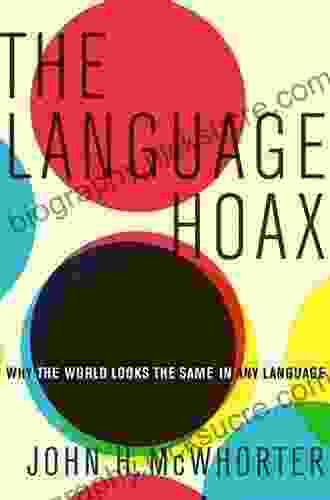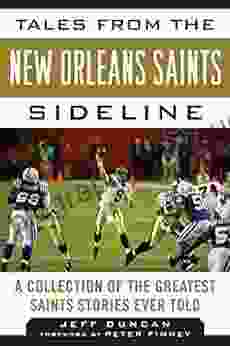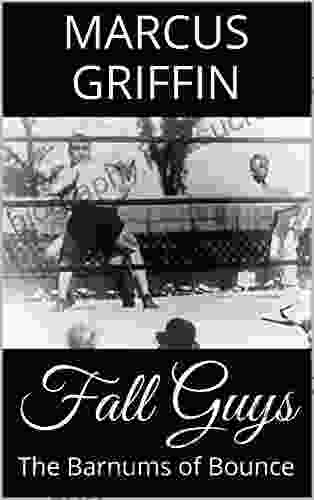Unveiling the Truth: A Comprehensive Analysis of John McWhorter's "The Language Hoax"

In his provocative and thought-provoking book, "The Language Hoax," renowned linguist John McWhorter challenges long-held beliefs about language and its role in human cognition. McWhorter argues that the idea that language shapes our thoughts and determines our worldview is a myth, a "hoax" that has been perpetuated by generations of linguists and educators.
This article aims to provide an in-depth analysis of McWhorter's book, exploring its central claims, evaluating its evidence, and discussing its implications for language education and linguistic research.
4.4 out of 5
| Language | : | English |
| File size | : | 1673 KB |
| Text-to-Speech | : | Enabled |
| Enhanced typesetting | : | Enabled |
| Print length | : | 207 pages |
| Lending | : | Enabled |
| Screen Reader | : | Supported |
Central Claims of "The Language Hoax"
At the heart of McWhorter's argument is the rejection of the Sapir-Whorf hypothesis, a theory that posits a strong relationship between language and thought. McWhorter contends that there is no evidence to support the idea that the structure of a particular language limits or determines the concepts that its speakers can think about.
McWhorter further argues that the notion of linguistic relativity, the idea that different languages encode reality in fundamentally different ways, is a myth. He points to the existence of numerous cross-linguistic universals, such as the use of pronouns, the distinction between nouns and verbs, and even basic grammatical structures, as evidence against the idea that language is an arbitrary system that can vary wildly across cultures.
Evaluating McWhorter's Evidence
McWhorter provides a wealth of evidence to support his claims, drawing on examples from a wide range of languages and cultures. He cites studies that have shown that speakers of different languages are equally adept at solving logical problems and understanding concepts, regardless of the structure of their native tongue.
McWhorter also challenges the widely held belief that certain languages are inherently superior or more expressive than others. He argues that all languages are equally capable of expressing complex ideas and conveying nuance.
Implications for Language Education and Linguistic Research
McWhorter's ideas have significant implications for language education and linguistic research. If language does not determine thought, then it follows that teaching students a particular language will not necessarily enhance their cognitive abilities or worldview.
McWhorter argues that language education should focus on developing students' communicative competence, rather than on teaching them grammatical rules or vocabulary lists. He also emphasizes the importance of exposing students to a variety of languages and cultures, to promote linguistic and cognitive flexibility.
McWhorter's ideas also challenge some traditional approaches to linguistic research. If language does not reflect the underlying cognitive structure of its speakers, then it follows that linguists should focus less on studying language as a mirror of the human mind, and more on understanding how language is used in real-world contexts.
Criticisms and Counterarguments
McWhorter's book has generated a great deal of controversy within the linguistic community. Some scholars have praised his work for its provocative insights and its challenge to the status quo. Others have criticized his arguments as simplistic and overly dismissive of the evidence for linguistic relativity.
One common criticism is that McWhorter's focus on cross-linguistic universals ignores the significant variation that exists among languages. While it is true that all languages share certain basic features, there is also a great deal of diversity in terms of grammar, vocabulary, and the ways in which languages encode meaning.
Another criticism is that McWhorter underestimates the role of language in shaping our experiences and interactions with the world. While it is true that language does not determine our thoughts, it can certainly influence the way we perceive and interpret our surroundings.
John McWhorter's "The Language Hoax" is a provocative and thought-provoking book that challenges long-held beliefs about language and cognition. While some of his claims are controversial, McWhorter provides a wealth of evidence to support his arguments, and his book raises important questions about the nature of language and its role in human society.
Whether or not one agrees with all of McWhorter's s, "The Language Hoax" is a valuable contribution to the ongoing debate about the relationship between language and thought. It is a book that will undoubtedly stimulate further research and discussion on this fascinating topic.
4.4 out of 5
| Language | : | English |
| File size | : | 1673 KB |
| Text-to-Speech | : | Enabled |
| Enhanced typesetting | : | Enabled |
| Print length | : | 207 pages |
| Lending | : | Enabled |
| Screen Reader | : | Supported |
Do you want to contribute by writing guest posts on this blog?
Please contact us and send us a resume of previous articles that you have written.
 Fiction
Fiction Non Fiction
Non Fiction Romance
Romance Mystery
Mystery Thriller
Thriller SciFi
SciFi Fantasy
Fantasy Horror
Horror Biography
Biography Selfhelp
Selfhelp Business
Business History
History Classics
Classics Poetry
Poetry Childrens
Childrens Young Adult
Young Adult Educational
Educational Cooking
Cooking Travel
Travel Lifestyle
Lifestyle Spirituality
Spirituality Health
Health Fitness
Fitness Technology
Technology Science
Science Arts
Arts Crafts
Crafts DIY
DIY Gardening
Gardening Petcare
Petcare Jade Barrett
Jade Barrett David Beaupre
David Beaupre Mackenzi Lee
Mackenzi Lee Eddie Merrins
Eddie Merrins Rachel Morgan
Rachel Morgan Emma Walker
Emma Walker Cary J Griffith
Cary J Griffith Barbara Gastel
Barbara Gastel Shayla Black
Shayla Black Thomas Lumley
Thomas Lumley Michael Wood
Michael Wood J Bruce Brackenridge
J Bruce Brackenridge Richard Scott
Richard Scott Charles Soule
Charles Soule F William Lawvere
F William Lawvere Percy Boomer
Percy Boomer Steve Biddulph
Steve Biddulph Lawrence Baldassaro
Lawrence Baldassaro Mike Commito
Mike Commito Ray Comfort
Ray Comfort Pavla Kesslerova
Pavla Kesslerova Lew Freedman
Lew Freedman Stephen J Bavolek
Stephen J Bavolek Peter K Tyson
Peter K Tyson Jenna Helland
Jenna Helland Robert Hogan
Robert Hogan P J Agness
P J Agness Janna Levin
Janna Levin John Lister Kaye
John Lister Kaye Rowan Jacobsen
Rowan Jacobsen Kyle Butler
Kyle Butler Helen Kara
Helen Kara Max Marchi
Max Marchi Basudeb Bhatta
Basudeb Bhatta Vincent Bossley
Vincent Bossley Jude Currivan
Jude Currivan Richard H Immerman
Richard H Immerman Monica Hesse
Monica Hesse Boy Scouts Of America
Boy Scouts Of America Chase Hill
Chase Hill Erica Schultz
Erica Schultz Jutta Schickore
Jutta Schickore Erica B Marcus
Erica B Marcus Brian Gilbert
Brian Gilbert Kit Yates
Kit Yates Edwin R Sherman
Edwin R Sherman Scarlett Thomas
Scarlett Thomas Rebecca Rupp
Rebecca Rupp Melissa Haag
Melissa Haag Leah Cullis
Leah Cullis Simon Spurrier
Simon Spurrier Barbara Kennard
Barbara Kennard Mia Scotland
Mia Scotland Mark Rashid
Mark Rashid T C Edge
T C Edge Nichole Carpenter
Nichole Carpenter Carlo Collodi
Carlo Collodi Diane Cardwell
Diane Cardwell Geoffrey Finch
Geoffrey Finch Jim Fay
Jim Fay Luke Gilkerson
Luke Gilkerson John G Robertson
John G Robertson Graham R Gibbs
Graham R Gibbs V B Alekseev
V B Alekseev Sam Harris
Sam Harris Stephen K Sanderson
Stephen K Sanderson Marshall Jon Fisher
Marshall Jon Fisher Jenny Chandler
Jenny Chandler Reprint Edition Kindle Edition
Reprint Edition Kindle Edition Catherine M Cameron
Catherine M Cameron Barbara Bassot
Barbara Bassot Farley Mowat
Farley Mowat Muhammad Zulqarnain
Muhammad Zulqarnain Chuck Missler
Chuck Missler Chris Bennett
Chris Bennett Pearson Education
Pearson Education Kindle Edition
Kindle Edition Malcolm Hebron
Malcolm Hebron Clifford Herriot
Clifford Herriot Gay Robins
Gay Robins Thomas Bulfinch
Thomas Bulfinch Jennifer Pharr Davis
Jennifer Pharr Davis Fred Mitchell
Fred Mitchell Denton Salle
Denton Salle Elliott Vandruff
Elliott Vandruff Cheryl Erwin
Cheryl Erwin Yuval Noah Harari
Yuval Noah Harari Beau Bradbury
Beau Bradbury Jenn Mcallister
Jenn Mcallister Barry Glassner
Barry Glassner Toby A H Wilkinson
Toby A H Wilkinson Beth Miller
Beth Miller Beebe Bahrami
Beebe Bahrami Shannon Reilly
Shannon Reilly Barry Rhodes
Barry Rhodes S E Hinton
S E Hinton Jill Brown
Jill Brown Bruce Pascoe
Bruce Pascoe Nick Neely
Nick Neely Cindy Post Senning
Cindy Post Senning Gary Lincoff
Gary Lincoff Hunbatz Men
Hunbatz Men Jayanti Tambe
Jayanti Tambe Craig Martin
Craig Martin David Taylor
David Taylor Stanislas Dehaene
Stanislas Dehaene Smart Reads
Smart Reads Geert Hofstede
Geert Hofstede Christine Kenneally
Christine Kenneally Trish Kuffner
Trish Kuffner Nick Townsend
Nick Townsend Joanna Hunt
Joanna Hunt Cait Stevenson
Cait Stevenson Scott Mactavish
Scott Mactavish Ron Lemaster
Ron Lemaster Daniel S Lobel Phd
Daniel S Lobel Phd Kathleen Masters
Kathleen Masters Susan Dennard
Susan Dennard Mark Young
Mark Young Marco Grandis
Marco Grandis Master Gamer
Master Gamer Paul Van Lierop
Paul Van Lierop Robin Knox Johnston
Robin Knox Johnston Ben Povlow
Ben Povlow John H Mcwhorter
John H Mcwhorter Jack Andraka
Jack Andraka Brad Burns
Brad Burns Steve Burrows
Steve Burrows Peter Wacht
Peter Wacht Kenneth Wilgus Phd
Kenneth Wilgus Phd Gabriyell Sarom
Gabriyell Sarom Clayton King
Clayton King Blair Braverman
Blair Braverman Editors Of Southern Living Magazine
Editors Of Southern Living Magazine Scott Reed
Scott Reed David Klausmeyer
David Klausmeyer Randy Baker
Randy Baker Sergei Urban
Sergei Urban Larry Dane Brimner
Larry Dane Brimner Lewis Thomas
Lewis Thomas Barbara Taylor
Barbara Taylor Linda Welters
Linda Welters Craig Lambert
Craig Lambert Joshua Hammer
Joshua Hammer Kam Knight
Kam Knight Graham Farmelo
Graham Farmelo Lynn Mann
Lynn Mann John Aldridge
John Aldridge Sampson Davis
Sampson Davis Scott Malthouse
Scott Malthouse Brandon Royal
Brandon Royal Daniel T Willingham
Daniel T Willingham Jamie Margolin
Jamie Margolin Hongyu Guo
Hongyu Guo Bernard Marr
Bernard Marr Eric Engle
Eric Engle James C Radcliffe
James C Radcliffe Helen Fisher
Helen Fisher Tara Brach
Tara Brach John Kimantas
John Kimantas Elizabeth George Speare
Elizabeth George Speare Nicole Martin
Nicole Martin St Louis Post Dispatch
St Louis Post Dispatch Bashir Hosseini Jafari
Bashir Hosseini Jafari Edward Lee
Edward Lee Yuki Mano
Yuki Mano Mark Mayfield
Mark Mayfield David A Bogart
David A Bogart Ryan A Pedigo
Ryan A Pedigo Julian I Graubart
Julian I Graubart Timothy Pakron
Timothy Pakron Glenna Mageau
Glenna Mageau Mike Stanton
Mike Stanton Gordon H Chang
Gordon H Chang Basu Shanker
Basu Shanker William H Frey
William H Frey Jeffrey Jensen Arnett
Jeffrey Jensen Arnett Daniel J Barrett
Daniel J Barrett Nicholas Sparks
Nicholas Sparks Ernie Morton
Ernie Morton Matt Taddy
Matt Taddy Print Replica Kindle Edition
Print Replica Kindle Edition Ping Li
Ping Li Joanne Glenn
Joanne Glenn Victor Seow
Victor Seow Ben Sedley
Ben Sedley Eric Franklin
Eric Franklin Gerald Beaudry
Gerald Beaudry Deanna Roy
Deanna Roy Chris Mooney
Chris Mooney Roanne Van Voorst
Roanne Van Voorst Barry Johnston
Barry Johnston S K Gupta
S K Gupta Kenton Kroker
Kenton Kroker Charlie Shamp
Charlie Shamp David Aretha
David Aretha Betty Stone
Betty Stone Stan Tekiela
Stan Tekiela Jay Abramson
Jay Abramson Lynn Rosen
Lynn Rosen John J Robinson
John J Robinson Khurshed Batliwala
Khurshed Batliwala James Syhabout
James Syhabout Richard Meadows
Richard Meadows John C Norcross
John C Norcross Harvey Wittenberg
Harvey Wittenberg Richard J Dewhurst
Richard J Dewhurst Crystal Duffy
Crystal Duffy Oliver T Spedding
Oliver T Spedding Debra Kilby
Debra Kilby Jean Illsley Clarke
Jean Illsley Clarke William Wasserman
William Wasserman Dustin Salomon
Dustin Salomon Vanessa Garbin
Vanessa Garbin Richard Chun
Richard Chun Scott Westerfeld
Scott Westerfeld Barbara Mertz
Barbara Mertz Cara Koscinski
Cara Koscinski Nadine Hays Pisani
Nadine Hays Pisani Ben Goldacre
Ben Goldacre Vanessa Ogden Moss
Vanessa Ogden Moss Richard Weissbourd
Richard Weissbourd Jim Wharton
Jim Wharton Stefan Ecks
Stefan Ecks Siddhartha Rao
Siddhartha Rao Catherine Shainberg
Catherine Shainberg John Garrity
John Garrity Emily Chappell
Emily Chappell Baruch Englard
Baruch Englard Guy P Harrison
Guy P Harrison Stephanie Fritz
Stephanie Fritz Barbara Ann Kipfer
Barbara Ann Kipfer Autumn Carpenter
Autumn Carpenter Dan Golding
Dan Golding James Kilgo
James Kilgo Titus M Kennedy
Titus M Kennedy Rhonda Belle
Rhonda Belle Mike Loades
Mike Loades Mike Massie
Mike Massie Laura Ingalls Wilder
Laura Ingalls Wilder Steven Rinella
Steven Rinella Bob Holtzman
Bob Holtzman Grey Owl
Grey Owl John D Barrow
John D Barrow Barbara Russell
Barbara Russell Holger Schutkowski
Holger Schutkowski Ryan Higa
Ryan Higa Samantha Fitts
Samantha Fitts Craig Romano
Craig Romano Babu The Panda
Babu The Panda Cynthia Levinson
Cynthia Levinson Buddy Levy
Buddy Levy Philip Maffetone
Philip Maffetone Arnold G Nelson
Arnold G Nelson Visual Arts
Visual Arts Eliza Reid
Eliza Reid James Koeper
James Koeper Alastair Hannay
Alastair Hannay Tom Miller
Tom Miller Gary Soto
Gary Soto Danny Staple
Danny Staple Yang Kuang
Yang Kuang Chris Cage
Chris Cage Mike Swedenberg
Mike Swedenberg Valerie Pollmann R
Valerie Pollmann R Burt L Standish
Burt L Standish Dave Rearwin
Dave Rearwin Dacher Keltner
Dacher Keltner Hill Gates
Hill Gates David Jamieson Bolder
David Jamieson Bolder Jack Newman
Jack Newman Lock Gareth
Lock Gareth R L Medina
R L Medina Spencer Wells
Spencer Wells Marc Loy
Marc Loy Dustin Hansen
Dustin Hansen Jennifer Traig
Jennifer Traig Mark Twain
Mark Twain Monta Z Briant
Monta Z Briant Robin Nixon
Robin Nixon Suzanne Leonhard
Suzanne Leonhard Temple West
Temple West Nina Manning
Nina Manning Barzin Pakandam
Barzin Pakandam Bryan Peterson
Bryan Peterson Massimo Cossu Nicola Pirina
Massimo Cossu Nicola Pirina Margaret Owen
Margaret Owen Charles River Editors
Charles River Editors Ben Collins
Ben Collins Mark Kurlansky
Mark Kurlansky Bill Mckibben
Bill Mckibben Bobbie Faulkner
Bobbie Faulkner T H White
T H White Charlotte Booth
Charlotte Booth Jonathan Bergmann
Jonathan Bergmann James Duthie
James Duthie J C Cervantes
J C Cervantes Christopher Taylor Ma Lmft
Christopher Taylor Ma Lmft Laura Pavlov
Laura Pavlov Richard Harris
Richard Harris Eugene V Resnick
Eugene V Resnick Jane Butel
Jane Butel Joseph Epes Brown
Joseph Epes Brown Joshua G Shifrin
Joshua G Shifrin Leia Stone
Leia Stone Ascencia
Ascencia Rebecca Solnit
Rebecca Solnit Breanna Hayse
Breanna Hayse Michelle Rigler
Michelle Rigler Mike Allison
Mike Allison Jane Hardwicke Collings
Jane Hardwicke Collings Mykel Hawke
Mykel Hawke Bill Milliken
Bill Milliken John Whitman
John Whitman Lily Collins
Lily Collins Frederick Douglass Opie
Frederick Douglass Opie Anthony Edwards
Anthony Edwards James Randi
James Randi Charles Buist
Charles Buist Ellen Lewin
Ellen Lewin Joseph Alton M D
Joseph Alton M D Dr Faith G Harper
Dr Faith G Harper Rachel Smith
Rachel Smith Jeremy Sweet
Jeremy Sweet Barbara Illowsk
Barbara Illowsk Sharon Dukett
Sharon Dukett Edith Grossman
Edith Grossman Rob Pope
Rob Pope Ronald Wheeler
Ronald Wheeler Suzanne Wylde
Suzanne Wylde Daniel M Koretz
Daniel M Koretz Gordon Witteveen
Gordon Witteveen Bagele Chilisa
Bagele Chilisa Wanda Priday
Wanda Priday Jesse Liberty
Jesse Liberty Molly E Lee
Molly E Lee Donald R Gallo
Donald R Gallo Julie L Spencer
Julie L Spencer Barry Friedman
Barry Friedman Mitch Prinstein
Mitch Prinstein Sam Nadler
Sam Nadler Jonathan Kellerman
Jonathan Kellerman Allan V Horwitz
Allan V Horwitz Christopher L Heuertz
Christopher L Heuertz Janis Keyser
Janis Keyser Tori Day
Tori Day Nicholas Wolterstorff
Nicholas Wolterstorff Roy Porter
Roy Porter Thomas French
Thomas French Dr Craig Malkin
Dr Craig Malkin Sam Kean
Sam Kean Mick Conefrey
Mick Conefrey Leonard M Adkins
Leonard M Adkins Kara Goucher
Kara Goucher Peter Martin
Peter Martin George Macdonald
George Macdonald David Cockburn
David Cockburn Charlotte Browne
Charlotte Browne Ralph Galeano
Ralph Galeano Jean Smith
Jean Smith Catherine J Allen
Catherine J Allen John Sandford
John Sandford Donald Frias
Donald Frias Jessica F Shumway
Jessica F Shumway Bb
Bb Sara Shepard
Sara Shepard Barbara Neiman
Barbara Neiman Sean Mcindoe
Sean Mcindoe Jessica Smartt
Jessica Smartt Dan R Lynch
Dan R Lynch Rob Rains
Rob Rains William Byers
William Byers David Abram
David Abram Wayne B Chandler
Wayne B Chandler Constanze Niedermaier
Constanze Niedermaier Chiara Sparks
Chiara Sparks Rob Hutchings
Rob Hutchings Tim Ingold
Tim Ingold Rachel Dash
Rachel Dash David Thomas
David Thomas James M Collins
James M Collins Justin Sirois
Justin Sirois Maha Alkurdi
Maha Alkurdi Candice Davie
Candice Davie Mark H Newman
Mark H Newman Robert Ardrey
Robert Ardrey Bonnie Tsui
Bonnie Tsui Meghan L Marsac
Meghan L Marsac Julie Buxbaum
Julie Buxbaum Steven Hawthorne
Steven Hawthorne Rachelle Zukerman
Rachelle Zukerman Susan Nance
Susan Nance Rick Joyner
Rick Joyner Kate Williams
Kate Williams Dr Michael P Masters
Dr Michael P Masters Bridget Flynn Walker Phd
Bridget Flynn Walker Phd David Starbuck Smith
David Starbuck Smith Chris Eberhart
Chris Eberhart Diane Musho Hamilton
Diane Musho Hamilton Diane Yancey
Diane Yancey Kate Darling
Kate Darling Nancy E Willard
Nancy E Willard Beau Miles
Beau Miles Reelav Patel
Reelav Patel Jeff Alt
Jeff Alt James Duggan
James Duggan John Henry Phillips
John Henry Phillips David Burch
David Burch Steven Bell
Steven Bell Mike High
Mike High Joseph Schmuller
Joseph Schmuller Daniel P Huerta
Daniel P Huerta Ron Avery
Ron Avery Shmuel Peerless
Shmuel Peerless Chadd Vanzanten
Chadd Vanzanten Eric Leiser
Eric Leiser Debbie M Schell
Debbie M Schell Leslie Stager
Leslie Stager Casey Watson
Casey Watson Noah Brown
Noah Brown Paul Doiron
Paul Doiron Nick Bollettieri
Nick Bollettieri Emma Brockes
Emma Brockes Tim Marshall
Tim Marshall Robin Mcmillan
Robin Mcmillan Arny Alberts
Arny Alberts Violet Moller
Violet Moller Otto Scharmer
Otto Scharmer Barbara Rogoff
Barbara Rogoff Pat Shipman
Pat Shipman Benita Bensch
Benita Bensch Macauley Lord
Macauley Lord Alexandra Andrews
Alexandra Andrews Mina Lebitz
Mina Lebitz Jennifer Estep
Jennifer Estep Marie Rutkoski
Marie Rutkoski Tami Anastasia
Tami Anastasia Patrick Sweeney
Patrick Sweeney Fabien Clavel
Fabien Clavel Kara Tippetts
Kara Tippetts Karen Bush
Karen Bush Hollis Lance Liebman
Hollis Lance Liebman J Michael Veron
J Michael Veron Jen Houcek
Jen Houcek Colleen Alexander Roberts
Colleen Alexander Roberts Howard Zinn
Howard Zinn Conor Nolan
Conor Nolan Ken Xiao
Ken Xiao W Scott Elliot
W Scott Elliot Becca Anderson
Becca Anderson Farzana Nayani
Farzana Nayani C R Hallpike
C R Hallpike Melissa Gomes
Melissa Gomes Jeff Belanger
Jeff Belanger Elizabeth Lockwood
Elizabeth Lockwood Linda Carroll
Linda Carroll John Quick
John Quick W Hamilton Gibson
W Hamilton Gibson Isabel Fonseca
Isabel Fonseca Ryan T White
Ryan T White Mary A Fristad
Mary A Fristad Michael Palin
Michael Palin Robert A Baruch Bush
Robert A Baruch Bush Leon Mccarron
Leon Mccarron Mark Ellyatt
Mark Ellyatt Brian Switek
Brian Switek Martin Sternstein
Martin Sternstein Prince Asare
Prince Asare Ellen Notbohm
Ellen Notbohm Barry Burd
Barry Burd Proper Education Group
Proper Education Group Martin Dugard
Martin Dugard Susan Scott
Susan Scott Sam Cowen
Sam Cowen Achille Rubini
Achille Rubini Jaymin Eve
Jaymin Eve Barry Rabkin
Barry Rabkin Barry J Kemp
Barry J Kemp Ian Leslie
Ian Leslie Erik J Brown
Erik J Brown Sport Hour
Sport Hour Linnea Dunne
Linnea Dunne Jake Anderson
Jake Anderson Dave Karczynski
Dave Karczynski
Light bulbAdvertise smarter! Our strategic ad space ensures maximum exposure. Reserve your spot today!
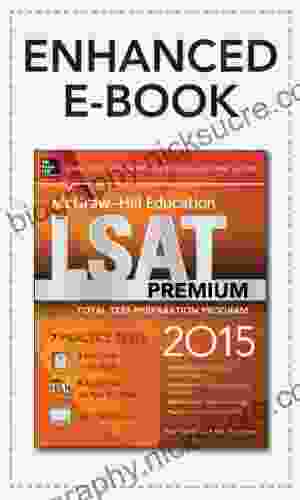
 Felix CarterStrategies Practice Tests 12 Videos Apps: The Ultimate Guide to Standardized...
Felix CarterStrategies Practice Tests 12 Videos Apps: The Ultimate Guide to Standardized...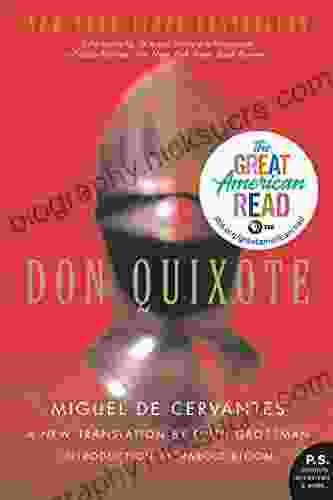
 Chinua AchebeUnlocking the Enchanting World of Don Quixote: Edith Grossman's Masterful...
Chinua AchebeUnlocking the Enchanting World of Don Quixote: Edith Grossman's Masterful... Jacques BellFollow ·9.2k
Jacques BellFollow ·9.2k Derek BellFollow ·16.7k
Derek BellFollow ·16.7k Leo MitchellFollow ·12.9k
Leo MitchellFollow ·12.9k John UpdikeFollow ·14.2k
John UpdikeFollow ·14.2k Leo TolstoyFollow ·8.6k
Leo TolstoyFollow ·8.6k Casey BellFollow ·17.2k
Casey BellFollow ·17.2k Julio CortázarFollow ·17k
Julio CortázarFollow ·17k Dave SimmonsFollow ·4.9k
Dave SimmonsFollow ·4.9k

 Israel Bell
Israel BellEmbark on an Epic 160-Mile Expedition for Charity on the...
Prepare yourself for an...
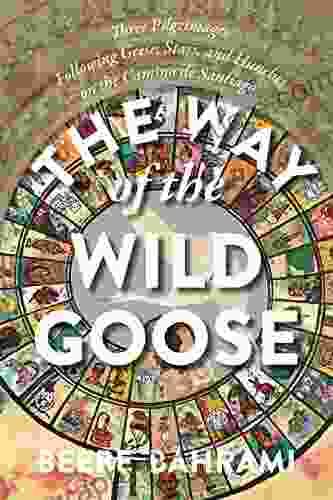
 Josh Carter
Josh CarterThe Way of the Wild Goose: A Journey of Embodied Wisdom...
The Way of the Wild Goose is an ancient...
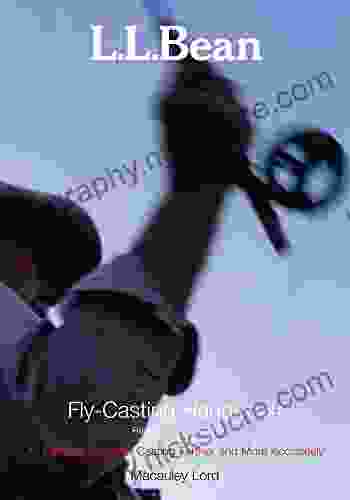
 Allen Parker
Allen ParkerMastering the Art of Bean Fly Casting: A Comprehensive...
Fly fishing,...
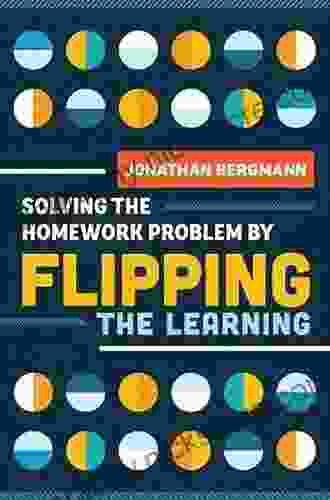
 Aaron Brooks
Aaron BrooksSolving the Homework Problem by Flipping the Learning
What is flipped...

 Fletcher Mitchell
Fletcher MitchellThe Jane Butel Library: A Renewed Source of Knowledge and...
The Jane Butel...
4.4 out of 5
| Language | : | English |
| File size | : | 1673 KB |
| Text-to-Speech | : | Enabled |
| Enhanced typesetting | : | Enabled |
| Print length | : | 207 pages |
| Lending | : | Enabled |
| Screen Reader | : | Supported |


